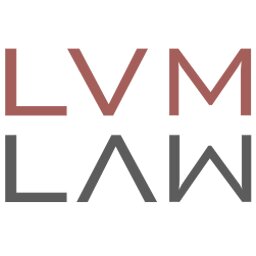Best Class Action Lawyers in City Hall
Share your needs with us, get contacted by law firms.
Free. Takes 2 min.
List of the best lawyers in City Hall, Singapore
About Class Action Law in City Hall, Singapore
Class Action Law in Singapore, including in City Hall, provides a platform for multiple individuals, who share common legal issues, to proceed as one within the court system. Singapore does not have a general regime for class action, like the U.S or Australia. Instead, multiple claims in Singapore are generally dealt with via "representative action", which operates under a different set of principles and requires certain criteria to be met such as the claimants having the same interest.
Why You May Need a Lawyer
In potential class action cases, engaging a lawyer is crucial since the legalities involved can be complex. A lawyer can assist in understanding if your case fits the criteria for a "representative action". A personal lawyer can help you to understand the potential benefits and risks of joining a class action. Additionally, if you are on the receiving end of a representative action, it is crucial to have solid legal advice to manage your defence effectively.
Local Laws Overview
In Singapore, the most relevant law to class actions is Order 15 Rule 12 of the Rules of Court, which allows for representative actions. This rule states that where numerous persons have the same interest in a cause or matter, one or more of them may represent all of them. However, all persons represented should have the same interest, meaning the issues raised should affect all parties equally and the relief sought should be beneficial to all.
Frequently Asked Questions
What is a representative action in Singapore?
A representative action in Singapore is a legal action in which one or several individuals represent the interests of a larger group of people with the same grievance. This action is used in place of a class action in Singapore.
What happens if I lose a representative action?
If you lose a representative action, the court may require you to pay the legal costs of the successful party, in addition to any damages that may be awarded. Every case is different, so the financial implications can vary widely.
Can anyone commence a representative action?
Anyone with the same interest as a group of individuals in a particular grievance can commence a representative action. However, the need for shared interest amongst all claimants is strictly observed and the court must grant permission for the action to proceed.
Who pays the legal fees in a representative action?
The party initiating the representative action is usually responsible for the legal fees. If the action is successful, the court may order the defendant to pay the claimants' legal fees.
Can I withdraw from a representative action?
Yes, you can withdraw from a representative action. However, the circumstances and implications of withdrawing can vary based on the specifics of the case, thus legal counsel should be sought.
Additional Resources
The Singaporean Ministry of Law and the Law Society of Singapore provide comprehensive resources related to representative actions. Furthermore, the Supreme Court of Singapore’s website offers a wealth of knowledge about the procedural rules governing such cases.
Next Steps
If you require legal assistance with a class action, the first step is to consult a reputable lawyer or legal firm. They can provide advice tailored to your situation and guide you through the legal process. Be prepared to provide as much detail as possible about your case during your initial consultation so that they can offer the most accurate advice.
Lawzana helps you find the best lawyers and law firms in City Hall through a curated and pre-screened list of qualified legal professionals. Our platform offers rankings and detailed profiles of attorneys and law firms, allowing you to compare based on practice areas, including Class Action, experience, and client feedback.
Each profile includes a description of the firm's areas of practice, client reviews, team members and partners, year of establishment, spoken languages, office locations, contact information, social media presence, and any published articles or resources. Most firms on our platform speak English and are experienced in both local and international legal matters.
Get a quote from top-rated law firms in City Hall, Singapore — quickly, securely, and without unnecessary hassle.
Disclaimer:
The information provided on this page is for general informational purposes only and does not constitute legal advice. While we strive to ensure the accuracy and relevance of the content, legal information may change over time, and interpretations of the law can vary. You should always consult with a qualified legal professional for advice specific to your situation.
We disclaim all liability for actions taken or not taken based on the content of this page. If you believe any information is incorrect or outdated, please contact us, and we will review and update it where appropriate.














